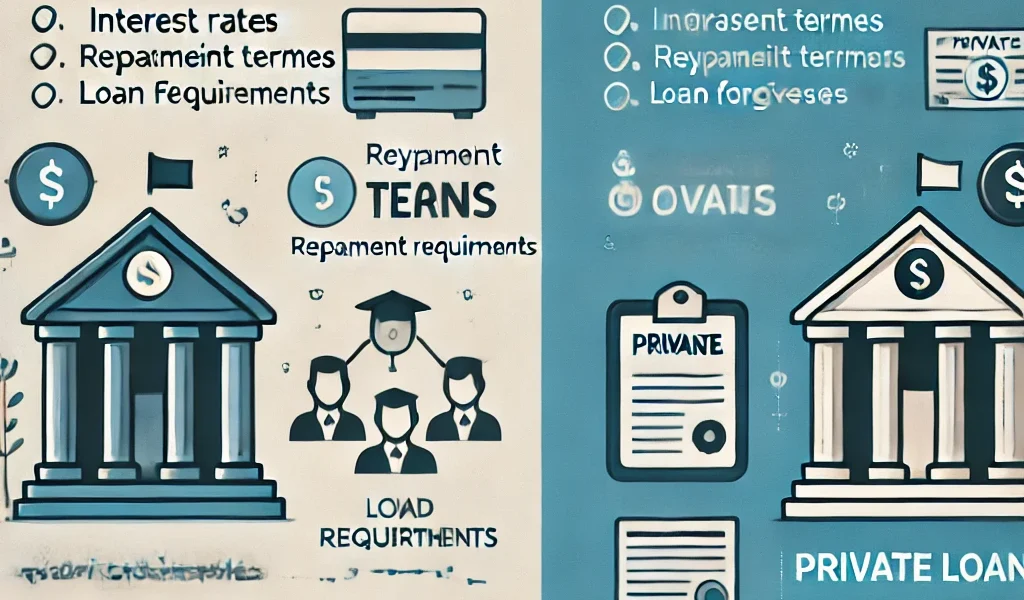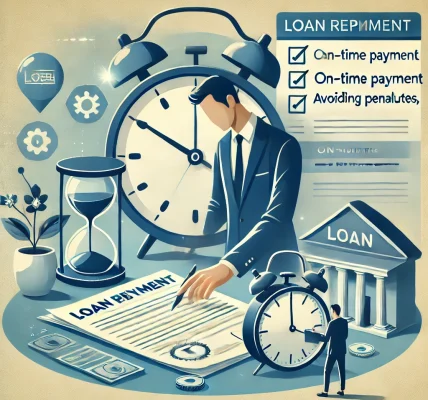Introduction
When it comes to borrowing money, choosing between government loans and private loans can be a crucial decision. Whether you’re seeking a loan for education, housing, business, or personal needs, understanding the key differences and benefits of each option can help you make an informed choice.
In this guide, we’ll explore the fundamental distinctions between government and private loans, their advantages and disadvantages, and how to determine which is best suited to your financial situation.
What Are Government Loans?
Government loans are loans that are either issued directly by a government entity or backed by the government. These loans are usually designed to provide financial assistance to individuals and businesses who may not qualify for private loans due to credit history, income limitations, or other factors.
Types of Government Loans
- Student Loans – Federal student loans offer lower interest rates and flexible repayment options.
- Home Loans – Programs such as FHA loans, VA loans, and USDA loans help people buy homes with lower down payments.
- Small Business Loans – The SBA (Small Business Administration) offers loans to help small businesses grow.
- Personal and Disaster Relief Loans – These include emergency relief loans during crises like natural disasters.
Benefits of Government Loans
- Lower Interest Rates – Typically, government loans offer lower interest rates compared to private loans.
- Flexible Repayment Terms – Options like income-driven repayment plans make it easier to manage payments.
- Loan Forgiveness Options – Some government loans, particularly student loans, offer forgiveness programs.
- Easier Qualification – Borrowers with lower credit scores or financial struggles may still qualify.
What Are Private Loans?
Private loans are issued by banks, credit unions, and online lenders. Unlike government loans, they are not backed or insured by the government, meaning lenders take on more risk.
Types of Private Loans
- Private Student Loans – Used to supplement federal student aid.
- Personal Loans – Can be used for various purposes, from medical expenses to vacations.
- Home Loans (Mortgages) – Conventional mortgages from private lenders.
- Business Loans – Funding provided by private banks or institutions for business expansion.
Benefits of Private Loans
- Higher Loan Amounts – Private lenders often provide larger loan amounts than government loans.
- Faster Approval Process – Private loans generally have a quicker application and approval process.
- More Customization – Lenders may offer customized loan terms to suit individual borrower needs.
- No Restrictions on Use – Unlike government loans, which are meant for specific purposes, private loans can be used for a variety of needs.
Key Differences Between Government and Private Loans
| Feature | Government Loans | Private Loans |
|---|---|---|
| Interest Rates | Lower, fixed rates | Higher, can be fixed or variable |
| Repayment Terms | Flexible, may include forgiveness | Less flexibility, stricter terms |
| Credit Requirements | Easier approval, lower credit score accepted | Requires strong credit history |
| Loan Forgiveness | Available in some cases (e.g., student loans) | Not available |
| Loan Amount | Limited, based on program caps | Higher amounts available |
| Approval Time | Longer, due to verification | Faster approval process |
Which Loan Should You Choose?
When to Choose a Government Loan
- If you have a low credit score or limited income.
- If you need student financial aid with flexible repayment options.
- If you qualify for specialized housing or business loans with government support.
- If you want the possibility of loan forgiveness.
When to Choose a Private Loan
- If you need a large loan amount beyond government loan limits.
- If you have excellent credit and can secure a lower interest rate.
- If you require fast approval and disbursement.
- If you are not eligible for government loan programs.
Conclusion
Both government and private loans have their advantages and drawbacks. The best choice depends on your financial situation, credit score, loan purpose, and repayment ability. Government loans offer affordability and flexibility, while private loans provide greater borrowing potential and quicker access to funds.
Before making a decision, compare loan terms, interest rates, and eligibility requirements to ensure you choose the best financing option for your needs.




